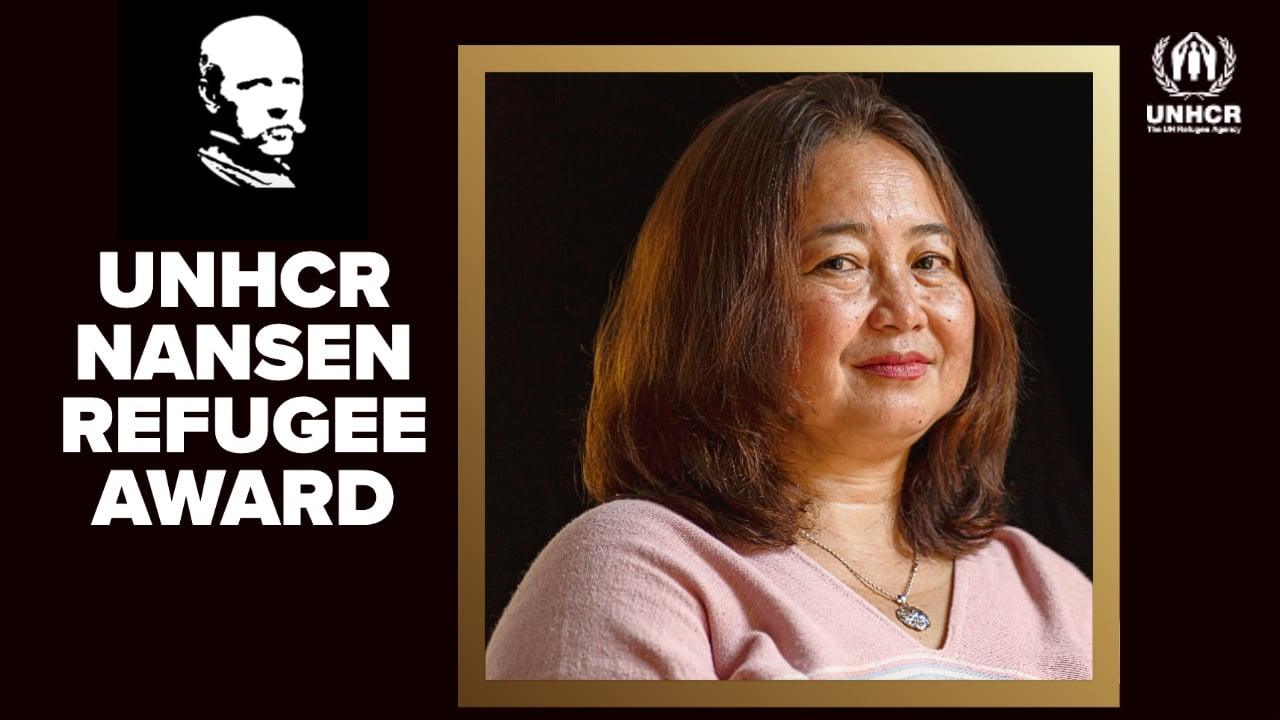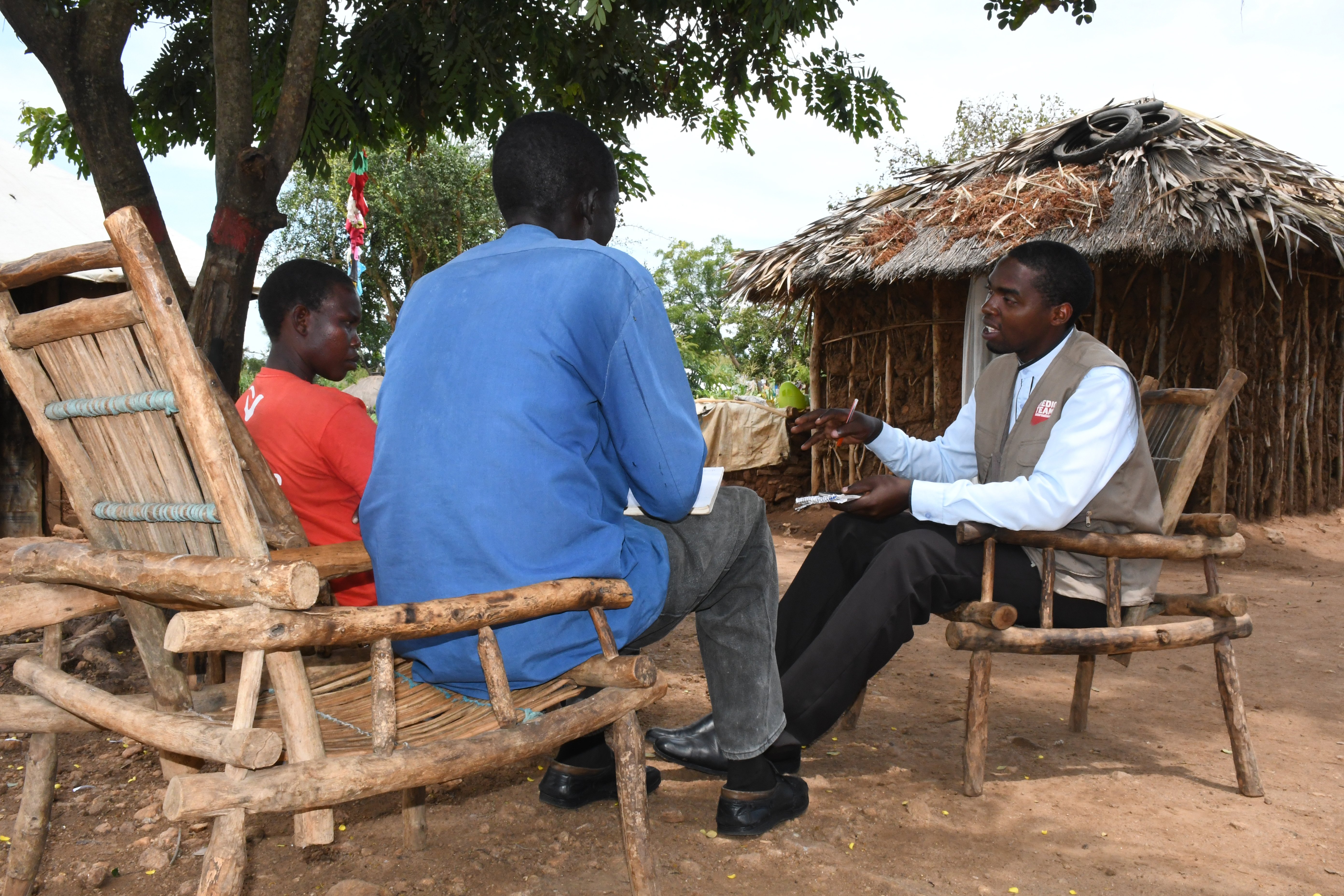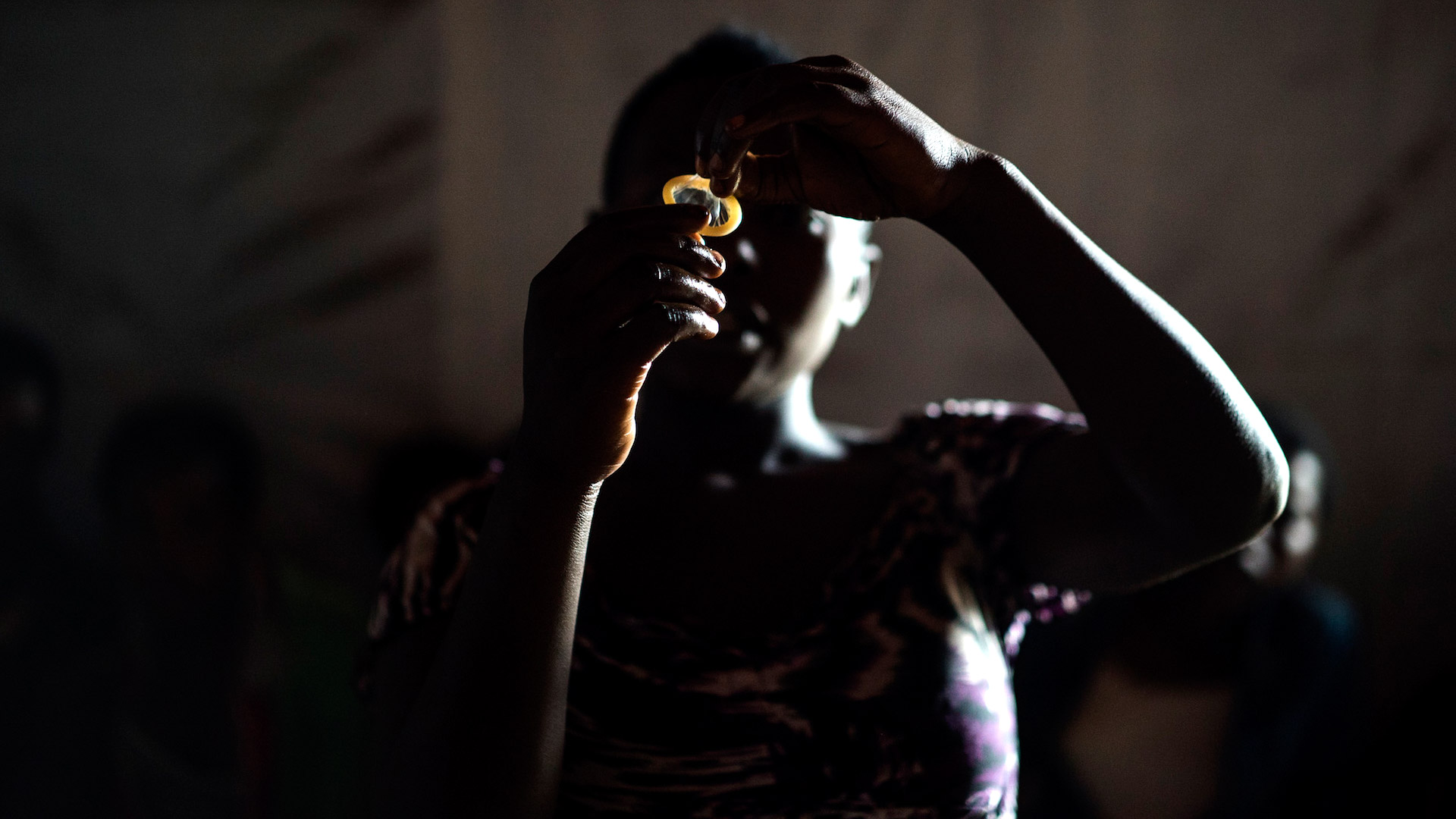Botswana camp fights uphill battle against HIV and AIDS
Botswana camp fights uphill battle against HIV and AIDS

DUKWI CAMP, Botswana, Feb 23 (UNHCR) - Sometimes, when refugee David F. visits neighbours in Dukwi camp to discuss the HIV and AIDS problem, they chase him away, unwilling to talk about sex-related issues.
Cultural taboos and myths about sex are among the many obstacles facing health workers in this camp of 3,000 refugees in Botswana, a country with one of the highest HIV prevalence rates in the world. The camp, which is home to refugees from a number of different countries across Africa, is - not surprisingly - not immune to the disease that is ravaging their host country, and in some cases, their home countries as well.
"Many young people are dying from AIDS," laments Mavis Matenge, UNHCR's officer for reproductive health and HIV and AIDS at Dukwi camp. "If we could only stop the disease from spreading further, it would already be a tremendous success."
Much has been done to inform the refugees about the dangers of AIDS and to encourage responsible sexual behaviour. Condoms are readily available at the camp, while information leaflets and posters are everywhere.
"If HIV is still spreading, it is not for lack of information," says Mutenge. For years, the refugees at Dukwi have been sensitised to the ABC formula of combating HIV and AIDS - Abstain, Be faithful, 'Condomise'.
Grass-roots approaches include the Peer Educators Project initiated by UNHCR and implemented by the Botswana Red Cross Society. Some 90 refugee volunteers - about one for every 33 refugees at Dukwi - have been trained to teach their peers about sexually transmitted infections, especially HIV.
Twice a week, they put on their blue T-shirts with the red ribbon symbol, and visit those parts of the camp assigned to them. The Peer Educators represent all nationalities in the camp, so they can speak to their fellow refugees in their own language, and are fully aware of the dos and don'ts of sex talk in each community.
"We talk to one family at a time," says David F. "And we work in all zones of the camp except Zone 10." Sadly, that is the fastest-growing zone in Dukwi - the camp cemetery.
The Peer Educators have many stories to tell. Most refugees listen to them, some say they will take their advice to heart. Others keep convincing themselves that HIV is spread by witchcraft and that sexual habits have nothing to do with it.
Some men believe that younger girls are safe from AIDS, and lure them with small presents like clothes or cosmetics. Poor and bored with camp life, some girls respond to these advances. They fall pregnant and drop out of school. Many end up HIV-positive, as do their babies.
Some women, including ones from outside the camp, who are desperate to avoid infection - but are often already infected - subscribe to the myth that refugee men from what appear to be strongly religious countries, are immune from HIV and AIDS. Reportedly, these women seek out such men as partners or for casual sex, passing on the disease and subsequently their wives in the camp.
Increasingly, refugee women are taking a stand. A group of them from Angola, Burundi, the Democratic Republic of the Congo (DRC), Namibia, Rwanda and Somalia founded the Peace Messengers initiative to help women deal with issues such as sexual violence and to show them ways out of victimhood.
One of their projects is a drama about a man leaving his wife and impregnating a young girl. "We want to show the dangers of teenage pregnancies and AIDS and the disruption of family structures," says the group leader, a Caprivian woman from Namibia. "When men abuse women, families like to keep it secret, saying it is their culture. But we do not buy that."
Refugee men are just as worried about the HIV situation. Twenty-six of them have started Sex, Men and AIDS, a community initiative to proactively make contact with decision-makers and opinion-shapers such as teachers, religious leaders, traditional healers, as well as with ordinary men. In discussions and workshops, they try to bring about changes in gender relations and to dispel myths about sex.
"Some men still believe that sex with a virgin can cure AIDS, that men need many partners to prove their virility or that condoms are killing pleasure," says Faustin, a Congolese refugee. The activists believe that change has to come from within the refugee community and that is what they are working towards.
The exact rate of HIV prevalence in the camp is unknown, partly because - as in wider society - most refugees are not interested in HIV tests. In Botswana, refugees and asylum seekers are not eligible for the national anti-retroviral treatment or the Prevention of Mother-to-Child Transmission programmes. Refugees say they would rather not know their status than test positive and be left without any treatment.
But denial has not stopped AIDS from taking its toll. Many patients with full-blown AIDS suffer and wither away, often without family or friends to look after them. Three camp nurses - two women and one man - attend to them at home on a daily basis. While they talk about their work, tears well up in their eyes. They see so many people dying and cannot do much more beyond helping their patients die with dignity.
"We visit them, we wash and feed them and we talk to them and we bond. That is all we can do," says nurse Annie S. "But it is hard to cope with this job where you never see anyone recover. In the long run they all die."
While the tragedy is unfolding among young adults, more and more children stay behind as orphans, some HIV-positive themselves. "There is still so much denial in the camp. AIDS is still stigmatised," says nurse Molly Mulipe. "We nurses sometimes feel really helpless. We try our best. But whatever we do, death is around the corner."
By Melita H. Sunjic in Botswana









